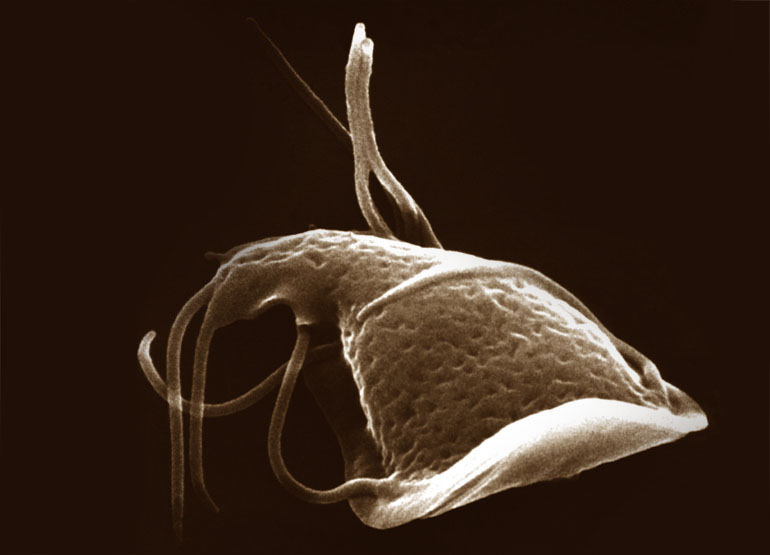Health Pages
Giardia & Giardiasis
Giardia & Giardiasis
Giardiasis in humans is caused by the infection of the small intestine by a single-celled organism called Giardia lamblia. Giardiasis occurs worldwide with a prevalence of 20–30% in developing countries. Additionally, Giardia has a wide range of human and other mammalian hosts, thus making it very difficult to eliminate.
Giardia is a genus of anaerobic flagellated protozoan parasites of the phylum Metamonada in the supergroup "Excavata" (named for the excavated groove on one side of the cell body) that colonise and reproduce in the small intestines of several vertebrates, causing giardiasis. Their life cycle alternates between an actively swimming trophozoite and an infective, resistant cyst. The genus was named after French zoologist Alfred Mathieu Giard.
Giardiasis is caused by the ingestion of infective cysts. There are multiple modes of transmission including person-to-person, water-borne, and venereal.
Person-to-person transmission accounts for a majority of Giardia infections and is usually associated with poor hygiene and sanitation. Water-borne transmission is common in United States Giardia epidemics, which are often associated with the ingestion of unfiltered water (contaminated). Venereal transmission happens through fecal-oral contamination. Additionally, diaper changing and inadequate hand washing are risk factors for transmission from infected children. Lastly, food-borne epidemics of Giardia have developed through the contamination of food by infected food-handlers. A range of clinical syndromes may occur, with gastrointestinal syndromes being the most prevalent.
Giardia lives inside the intestines of infected humans or animals. Individuals become infected through ingesting or coming into contact with contaminated food, soil, or water. The Giardia parasite spreads when a person accidently swallows it, which can originate from contaminated items and surfaces that have been tainted by the feces of an infected human or animal. Consuming unsanitary water or food is also another way in which the parasite can transfer from being to being.



